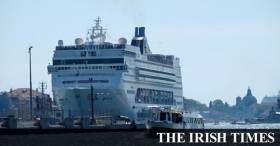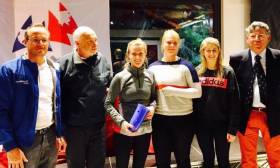Displaying items by tag: Venice
A family from Ireland were caught up in a cruise ship collision with a tourist boat in Venice has hit out at the company’s treatment of passengers left stranded in the aftermath of the accident.
As The Irish Times reports, Charlie and Anne Lumsden and their daughter Nichola were on board the MSC Opera when it into the dock and a smaller tourist boat as it approached the Giudecca canal in the city.
Mr Lumsden said they were on deck, going for breakfast before their departure after a week-long cruise when the accident occurred. “We didn’t feel the collision,” he said, but the alarm went off and staff rushed up stairs and along each deck.
The incident happened at 8.30am and Mr and Mrs Lumsden were due to fly back to Dublin at 12.15, but nobody was allowed off the vessel until 2.50pm until the port authorities had finished their investigations, he said.
In the end they had to organise and pay for their alternative flights on Monday, overnight accommodation in a hotel outside Venice and taxis at a cost of about €1,500.
For more on this story, click here.
Royal Cork Keelboat Team Third In Venice 2K
#RCYC -The Royal Cork Yacht Club was represented this weekend at the Venice leg of the international 2K team racing circuit, hosted by the Compagnia della Vela di Venezia.
The mixed Cork crew, who enjoyed a strong finish in Anzio this summer, placed behind Britain’s Serpentine Racing and the winning Dutch-Italian contingent from the Yacht Club Costal Olanda, but ahead of the home team at Compagnia della Vela di Venezia.
The event, taking place from the 4th to the 6th of November, had 11 teams from Italy, Germany, The Netherlands, Britain, Ireland and Sweden competing in generally very light wind conditions. Unfortunately the final day of racing was cut short due to light winds and the results were awarded based on the round robin standings. The RCYC team were beaten by Britain’s Serpentine Racing and the winning Dutch-Italian contingent, known as Yacht Club Costa Olanda.
The team consisting of Fred Cudmore, Lisa Tait, Philip O'Leary, Sonia Minihane, George Kingston, Emma Geary, Sean Cotter and Sarah O'Leary finished in third place.






























































